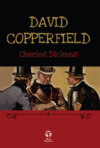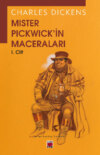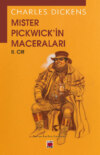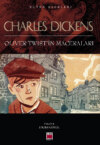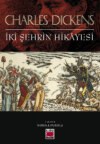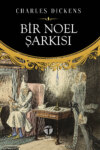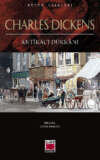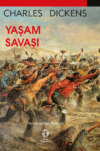Kitabı oku: «Pearl-Fishing; Choice Stories from Dickens' Household Words; First Series», sayfa 3
Shortly after, the Count Selka led her to the piano. She sat down before it, and thinking what she should sing, glanced round upon the assembly. She could not help feeling that the admiration which beamed from the faces around her was the work of her own merit, for had she neglected the great gift of nature, her voice, she could not have excited it. With a blushing cheek, and eyes sparkling with honest pride, she struck the piano with a firm hand, and from her seemingly weak and delicate chest poured forth a touching Polish melody, with a voice pure, sonorous, and plaintive. Tears were in many eyes, and the beating of every heart was quickened.
The song was finished, but the wondering silence was unbroken. Giovanna leaned exhausted on the arm of the chair, and cast down her eyes. On again raising them, she perceived a gentleman who gazed fixedly at her, as if he still listened to echoes which had not yet died within him. The master of the house, to dissipate his thoughtlessness, led him towards Giovanna. “Let me present to you, Signora,” he said, “a countryman, the Count Leon Roszynski.”
The lady trembled; she silently bowed, fixed her eyes on the ground, and dared not raise them. Pleading indisposition, which was fully justified by her pallid features, she soon after withdrew.
When, on the following day, Giovanna’s servant announced the Counts Selka and Roszynski, a peculiar smile played on her lips; and when they entered, she received the latter with the cold and formal politeness of a stranger. Controlling the feelings of her heart, she schooled her features to an expression of indifference. It was manifest from Leon’s manner, that without the remotest recognition, an indefinable presentiment regarding her possessed him. The Counts had called to know if Giovanna had recovered from her indisposition. Leon begged to be permitted to call again.
Where was his wife? why did he never mention her? Giovanna continually asked herself these questions when they had departed.
A few nights after, the Count Leon arrived, sad and thoughtful. He prevailed on Giovanna to sing one of her Polish melodies, which she told him she had been taught, when a child, by her nurse. Roszynski, unable to restrain the expression of an intense admiration he had long felt, frantically seized her hand, and exclaimed, “I love you!”
She withdrew it from his grasp, remained silent for a few minutes, and then said slowly, distinctly, and ironically, “But I do not love you, Count Roszynski.”
Leon rose from his seat. He pressed his hands to his brow, and was silent. Giovanna remained calm and tranquil. “It is a penalty from Heaven,” continued Leon, as if speaking to himself, “for not having fulfilled my duty as a husband towards one whom I chose voluntarily, but without reflection. I wronged her, and am punished.”
Giovanna turned her eyes upon him. Leon continued, “Young, and with a heart untouched, I married a princess about ten years older than myself, of eccentric habits and bad temper. She treated me as an inferior. She dissipated the fortune hoarded up with so much care by my parents, and yet was ashamed, on account of my origin, to be called by my name. Happily for me, she was fond of visiting and amusements. Otherwise, to escape from her, I might have become a gambler, or worse; but to avoid meeting her, I remained at home – for there she seldom was. At first from ennui, but afterwards from real delight in the occupation, I gave myself up to study. Reading formed my mind and heart. I became a changed being. Some months ago my father died, my sister went to Lithuania, whilst my mother, in her old age, and with her ideas, was quite incapable of understanding my sorrow. So when my wife went to the baths for the benefit of her ruined health, I came here in the hope of meeting with some of my former friends – I saw you – ”
Giovanna blushed like one detected; but speedily recovering herself, asked, with calm pleasantry, “Surely you do not number me among your former friends?”
“I know not. I have been bewildered. It is strange; but from the moment I saw you at Count Selka’s, a powerful instinct of love overcame me; not a new feeling; but as if some latent, long-hid, undeveloped sentiment had suddenly burst forth into an uncontrollable passion. I love, I adore you. I – ”
The Prima Donna interrupted him – not with speech, but with a look which awed, which chilled him. Pride, scorn, irony sat in her smile. Satire darted from her eyes. After a pause she repeated slowly and pointedly, “Love me, Count Roszynski?”
“Such is my destiny,” he replied. “Nor, despite your scorn, will I struggle against it. I feel it is my fate ever to love you; I fear it is my fate never to be loved by you. It is dreadful.”
Giovanna witnessed the Count’s emotion with sadness. “To have,” she said mournfully, “one’s first, pure, ardent, passionate affection unrequited, scorned, made a jest of, is indeed a bitterness, almost equal to that of death.”
She made a strong effort to conceal her emotion. Indeed she controlled it so well as to speak the rest with a sort of gaiety.
“You have at least been candid, Count Roszynski; I will imitate you by telling a little history that occurred in your country. There was a poor girl born and bred a serf to her wealthy lord and master. When scarcely fifteen years old, she was torn from a state of happy rustic freedom – the freedom of humility and content – to be one of the courtly slaves of the Palace. Those who did not laugh at her, scolded her. One kind word was vouchsafed to her, and that came from the lord’s son. She nursed it and treasured it; till, from long concealing and restraining her feelings, she at last found that gratitude had changed into a sincere affection. But what does a man of the world care for the love of a serf? It does not even flatter his vanity. The young nobleman did not understand the source of her tears and her grief, and he made a present of her, as he would have done of some animal, to his betrothed.”
Leon, agitated and somewhat enlightened, would have interrupted her; but Giovanna said, “Allow me to finish my tale. Providence did not abandon this poor orphan, but permitted her to rise to distinction by the talent with which she was endowed by nature. The wretched serf of Pobereze became a celebrated Italian cantatrice. Then her former lord meeting her in society, and seeing her admired and courted by all the world, without knowing who she really was, was afflicted, as if by the dictates of Heaven, with a love for this same girl, – with a guilty love” —
And Giovanna rose, as she said this, to remove herself further from her admirer.
“No, no!” he replied earnestly; “with a pure and holy passion.”
“Impossible!” returned Giovanna. “Are you not married?”
Roszynski vehemently tore a letter from his vest, and handed it to Giovanna. It was sealed with black, for it announced the death of his wife at the baths. It had only arrived that morning.
“You have lost no time,” said the cantatrice, endeavoring to conceal her feelings under an iron mask of reproach.
There was a pause. Each dared not speak. The Count knew – but without actually and practically believing what seemed incredible – that Anielka and Giovanna were the same person —his slave. That terrible relationship checked him. Anielka, too, had played her part to the end of endurance. The long-cherished tenderness – the faithful love of her life, could not longer be wholly mastered. Hitherto they had spoken in Italian. She now said in Polish,
“You have a right, my Lord Roszynski, to that poor Anielka who escaped from the service of your wife in Florence; you can force her back to your palace, to its meanest work, but” —
“Have mercy on me!” cried Leon.
“But,” continued the serf of Pobereze, firmly, “you cannot force me to love you.”
“Do not mock – do not torture me more; you are sufficiently revenged. I will not offend you by importunity. You must indeed hate me! But remember that we Poles wished to give freedom to our serfs; and for that very reason our country was invaded and dismembered by despotic powers. We must therefore continue to suffer slavery as it exists in Russia; but, soul and body, we are averse to it; and when our country once more becomes free, be assured no shadow of slavery will remain in the land. Curse then our enemies, and pity us that we stand in such a desperate position between Russian bayonets and Siberia, and the hatred of our serfs.”
So saying, and without waiting for a reply, Leon rushed from the room. The door was closed. Giovanna listened to the sounds of his rapid footsteps till they died in the street. She would have followed, but dared not. She ran to the window. Roszynski’s carriage was rolling rapidly away, and she exclaimed vainly, “I love you, Leon; I loved you always!”
Her tortures were unendurable. To relieve them she hastened to her desk, and wrote these words: —
“Dearest Leon, forgive me; let the past be forever forgotten. Return to your Anielka. She always has been, ever will be yours.”
She despatched the missive. Was it too late? or would it bring him back? In the latter hope she retired to her chamber, to execute a little project.
Leon was in despair. He saw he had been premature in so soon declaring his passion after the news of his wife’s death, and vowed he would not see Anielka again for several months. To calm his agitation, he had ridden some miles into the country. When he returned to his hotel after some hours, he found her note. With the wild delight it had darted into his soul, he flew back to her.
On regaining her saloon a new and terrible vicissitude seemed to sport with his passion: – she was nowhere to be seen. Had the Italian cantatrice fled? Again he was in despair; stupefied with disappointment. As he stood uncertain how to act in the midst of the floor, he heard, as from a distance, an Ave Maria poured forth in tones he half-recognized. The sounds brought back to him a host of recollections; a weeping serf, the garden of his own palace. In a state of new rapture he followed the voice. He traced it to an inner chamber, and he there beheld the lovely singer kneeling in the costume of a Polish serf. She rose, greeted Leon with a touching smile, and stepped forward with serious bashfulness. Leon extended his arms; she sank into them; and in that fond embrace all past wrongs and sorrows were forgotten! Anielka drew from her bosom a little purse, and took from it a piece of silver. It was the rouble. Now, Leon did not smile at it. He comprehended the sacredness of this little gift; and some tears of repentance fell upon Anielka’s hand.
A few months after, Leon wrote to the steward of Olgogrod to prepare everything splendidly for the reception of his second wife. He concluded his letter with these words: – “I understand that in the dungeon beneath my palace there are some unfortunate men, who were imprisoned during my father’s lifetime. Let them be instantly liberated. This is my first act of gratitude to God, who has so infinitely blessed me!”
Anielka longed ardently to behold her native land. They left Vienna immediately after the wedding, although it was in the middle of January.
It was already quite dark when the carriage, with its four horses, stopped in front of the portico of the palace of Olgogrod. Whilst the footman was opening the door on one side, a beggar soliciting alms appeared at the other, where Anielka was seated. Happy to perform a good action, as she crossed the threshold of her new home, she gave him some money; but the man, instead of thanking her, returned her bounty with a savage laugh, at the same time scowling at her in the fiercest manner from beneath his thick and shaggy brows. The strangeness of this circumstance sensibly affected Anielka, and clouded her happiness. Leon soothed and re-assured her. In the arms of her beloved husband, she forgot all but the happiness of being the idol of his affections.
Fatigue and excitement made the night most welcome. All was dark and silent around the palace, and some hours of the night had passed, when suddenly flames burst forth from several parts of the building at once. The palace was enveloped in fire; it raged furiously. The flames mounted higher and higher; the windows cracked with a fearful sound, and the smoke penetrated into the most remote apartments.
A single figure of a man was seen stealing over the snow, which lay like a winding-sheet on the solitary waste; his cautious steps were heard on the frozen snow as it crisped beneath his tread. It was the beggar who had accosted Anielka. On a rising ground, he turned to gaze on the terrible scene. “No more unfortunate wretches will now be doomed to pass their lives in your dungeons,” he exclaimed. “What was my crime? Reminding my master of the lowness of his birth. For this they tore me from my only child – my darling little Anielka; they had no pity even for her orphan state; let them perish all!”
Suddenly a young and beautiful creature rushes wildly to one of the principal windows: she makes a violent effort to escape. For a moment her lovely form, clothed in white, shines in terrible relief against the background of blazing curtains and walls of fire, and as instantly sinks back into the blazing element. Behind her is another figure, vainly endeavoring to aid her, – he perishes also; neither are ever seen again!
This appalling tragedy horrified even the perpetrator of the crime. He rushed from the place; and as he heard the crash of the falling walls, he closed his ears with his hands, and darted on faster and faster.
The next day some peasants discovered the body of a man frozen to death, lying on a heap of snow, – it was that of the wretched incendiary. Providence, mindful of his long, of his cruel imprisonment and sufferings, spared him the anguish of knowing that the mistress of the palace he had destroyed, and who perished in the flames, was his own beloved daughter – the Serf of Pobereze!
III.
My Wonderful Adventures in Skitzland
I AM fond of Gardening. I like to dig. If among the operations of the garden any need for such a work can be at any time discovered or invented, I like to dig a hole.
On the 3d of March, 1849, I began a hole behind the kitchen wall, whereinto it was originally intended to transplant a plum tree. The exercise was so much to my taste, that a strange humor impelled me to dig on. A fascination held me to the task. I neglected my business. I disappeared from the earth’s surface. A boy who worked a basket by means of a rope and pulley, aided me; so aided, I confined my whole attention to spade labor. The centripetal force seemed to have made me its especial victim. I dug on until Autumn. In the beginning of November I observed that, upon percussion, the sound given by the floor of my pit was resonant. I did not intermit my labor, urged as I was by a mysterious instinct downwards. On applying my ear, I occasionally heard a subdued sort of rattle, which caused me to form a theory that the centre of the earth might be composed of mucus. In November, the ground broke beneath me into a hollow, and I fell a considerable distance. I alighted on the box-seat of a four-horse coach, which happened to be running at that time immediately underneath. The coachman took no notice whatever of my sudden arrival by his side. He was so completely muffled up, that I could observe only the skilful way in which he manipulated reins and whip. The horses were yellow. I had seen no more than this, when the guard’s horn blew, and presently we pulled up at an inn. A waiter came out, and appeared to collect four bags from the passengers inside the coach. He then came round to me.
“Dine here, Sir?”
“Yes, certainly,” said I. I like to dine – not the sole point of resemblance between myself and the great Johnson.
“Trouble you for your stomach, Sir.”
While the waiter was looking up with a polite stare into my puzzled face, my neighbor, the coachman, put one hand within his outer coat, as if to feel for money in his waistcoat pocket. Directly afterwards his fingers came again to light, and pulled forth an enormous sack. Notwithstanding that it was abnormally enlarged, I knew by observation of its form and texture that this was a stomach, with the œsophagus attached. This, then, the waiter caught as it was thrown down to him, and hung it carelessly over his arm, together with the four smaller bags (which I now knew to be also stomachs) collected from the passengers within the coach. I started up, and as I happened to look round, observed a skeleton face upon the shoulders of a gentleman who sat immediately behind my back. My own features were noticed at the same time by the guard, who now came forward touching his hat.
“Beg your pardon, Sir, but you’ve been and done it.”
“Done what?”
“Why, Sir, you should have booked your place, and not come up in this clandestine way. However, you’ve been and done it!”
“My good man, what have I done?”
“Why, Sir, the Baron Terroro’s eyes had the box seat, and I strongly suspect you’ve been and sat upon them.”
I looked involuntarily to see whether I had been sitting upon anything except the simple cushion. Truly enough, there was an eye, which I had crushed and flattened.
“Only one,” I said.
“Worse for you, and better for him. The other eye had time to escape, and it will know you again, that’s certain. Well, it’s no business of mine. Of course you’ve no appetite now for dinner? Better pay your fare, Sir. To the Green Hippopotamus and Spectacles, where we put up, it’s ten-and-six.”
“Is there room inside?” I inquired. It was advisable to shrink from observation.
“Yes, Sir. The inside passengers are mostly skeleton. There’s room for three, Sir. Inside, one-pound-one.”
I paid the money, and became an inside passenger.
Professor Essig’s Lectures on Anatomy had so fortified me, that I did not shrink from entering the Skitzton coach. It contained living limbs, loose or attached to skeletons in other respects bare, except that they were clothed with broadcloth garments, cut after the English fashion. One passenger only had a complete face of flesh, he had also one living hand; the other hand I guessed was bony, because it was concealed in a glove obviously padded. By observing the fit of his clothes, I came to a conclusion that this gentleman was stuffed throughout; that all his limbs, except the head and hand, were artificial. Two pair of Legs, in woollen stockings, and a pair of Ears, were in a corner of the coach, and in another corner there were nineteen or twenty Scalps.
I thought it well to look astonished at nothing, and, having pointed in a careless manner to the scalps, asked what might be their destination? The person with the Face and Hand replied to me; and although evidently himself a gentleman, he addressed me with a tone of unconcealed respect.
“They are going to Skitzton, Sir, to the hairdresser’s.”
“Yes, to be sure,” I said. “They are to make Natural Skin Wigs. I might have known.”
“I beg your pardon, Sir. There is a ball to-morrow night at Culmsey. But the gentry do not like to employ village barbers, and therefore many of the better class of people send their hair to Skitzton, and receive it back by the return coach properly cut and curled.”
“Oh,” said I. “Ah! Oh, indeed!”
“Dinners, gentlemen!” said a voice at the window, and the waiter handed in four stomachs, now tolerably well filled. Each passenger received his property, and pulling open his chest with as much composure as if he were unbuttoning his waistcoat, restored his stomach, with a dinner in it, to the right position. Then the reckonings were paid, and the coach started.
I thought of my garden, and much wished that somebody could throw Professor Essig down the hole that I had dug. A few things were to be met with in Skitzland which would rather puzzle him. They puzzled me; but I took refuge in silence, and so fortified, protected my ignorance from an exposure.
“You are going to court, Sir, I presume?” said my Face and Hand friend, after a short pause. His was the only mouth in the coach, excepting mine, so that he was the only passenger able to enter into conversation.
“My dear Sir,” I replied, “let me be frank with you. I have arrived here unexpectedly out of another world. Of the manners and customs, nay, of the very nature of the people who inhabit this country, I know nothing. For any information you can give me, I shall be very grateful.”
My friend smiled incredulity, and said,
“Whatever you are pleased to profess, I will believe. What you are pleased to feign a wish for, I am proud to furnish. In Skitzland, the inhabitants, until they come of age, retain that illustrious appearance which you have been so fortunate as never to have lost. During the night of his twenty-first birthday, each Skitzlander loses the limbs which up to that period have received from him no care, no education. Of those neglected parts the skeletons alone remain, but all those organs which he has employed sufficiently continue unimpaired. I, for example, devoted to the study of the law, forgot all occupation but to think, to use my senses, and to write. I rarely used my legs, and therefore Nature has deprived me of them.”
“But,” I observed, “it seems that in Skitzland you are able to take yourselves to pieces.”
“No one has that power more largely than yourself. What organs we have we can detach on any service. When dispersed, a simple force of Nature directs all corresponding members whither to fly that they may re-assemble.”
“If they can fly,” I asked, “why are they sent in coaches? There were a pair of eyes on the box-seat.”
“Simply for safety against accidents. Eyes flying alone are likely to be seized by birds, and incur many dangers. They are sent, therefore, usually under protection, like any other valuable parcel.”
“Do many accidents occur?”
“Very few. For mutual protection, and also because a single member is often all that has been left existing of a fellow Skitzlander, our laws, as you, Sir, know much better than myself, estimate the destruction of any part absent on duty from its skeleton as a crime equivalent to murder – ”
After this I held my tongue. Presently my friend again inquired whether I was going up to Court?
“Why should I go to Court?”
“Oh, Sir, it pleases you to be facetious. You must be aware that any Skitzlander who has been left by Nature in possession of every limb, sits in the Assembly of the Perfect, or the Upper House, and receives many State emoluments and dignities.”
“Are there many members of that Upper Assembly?”
“Sir, there were forty-two. But if you are now travelling to claim your seat, the number will be raised to forty-three.”
“The Baron Terroro – ” I hinted.
“My brother, Sir. His eyes are on the box-seat under my care. Undoubtedly he is a Member of the Upper House.”
I was now anxious to get out of the coach as soon as possible. My wish was fulfilled after the next pause. One Eye, followed by six Pairs of Arms, with strong hard Hands belonging to them, flew in at the window. I was collared; the door was opened, and all hands were at work to drag me out and away. The twelve Hands whisked me through the air, while the one Eye sailed before us, like an old bird, leader of the flight.
What sort of sky have they in Skitzland? Our earth overarches them, and, as the sun-light filters through, it causes a subdued illumination with very pure rays. Skitzland is situated nearly in the centre of our globe, it hangs there like a shrunken kernel in the middle of a nutshell. The height from Skitzland to the over-arching canopy is great; so great, that if I had not fallen personally from above the firmament, I should have considered it to be a blue sky similar to ours. At night it is quite dark; but during the day there is an appearance in the Heaven of white spots; their glistening reminded me of stars. I noticed them as I was being conveyed to prison by the strong arms of justice, for it was by a detachment of members from the Skitzton Police that I was now hurried along. The air was very warm, and corroborated the common observation of an increase of heat as you get into the pith of our planet. The theory of Central Fire, however, is, you perceive, quite overturned by my experience.
We alighted near the outskirts of a large and busy town. Through its streets I was dragged publicly, much stared at, and much staring. The street life was one busy nightmare of disjointed limbs. Professor Essig, could he have been dragged through Skitzton, would have delivered his farewell lecture upon his return. “Gentlemen, Fuit Ilium – Fuit Ischium – Fuit Sacrum – Anatomy has lost her seat among the sciences. My occupation’s gone.” Professor Owen’s Book “On the Nature of Limbs,” must contain, in the next edition, an Appendix “Upon Limbs in Skitzland.” I was dragged through the streets, and all that I saw there, in the present age of little faith, I dare not tell you. I was dragged through the streets to prison and there duly chained, after having been subjected to the scrutiny of about fifty couples of eyes drawn up in a line within the prison door. I was chained in a dark cell, a cell so dark that I could very faintly perceive the figure of some being who was my companion. Whether this individual had ears wherewith to hear, and mouth wherewith to answer me, I could not see, but at a venture I addressed him. My thirst for information was unconquerable; I began, therefore, immediately with a question:
“Friend, what are those stars which we see shining in the sky at mid-day?”
An awful groan being an unsatisfactory reply, I asked again.
“Man, do not mock at misery. You will yourself be one of them.”
‘The Teachers shall shine like Stars in the Firmament.’ I have a propensity for teaching, but was puzzled to discover how I could give so practical an illustration of the text of Fichte.
“Believe me,” I said, “I am strangely ignorant. Explain yourself.”
He answered with a hollow voice:
“Murderers are shot up out of mortars into the sky, and stick there. Those white, glistening specks, they are their skeletons.”
Justice is prompt in Skitzland. I was tried incredibly fast by a jury of twelve men who had absolutely heads. The judges had nothing but brain, mouth, and ear. Three powerful tongues defended me, but as they were not suffered to talk nonsense, they had little to say. The whole case was too clear to be talked into cloudiness. Baron Terroro, in person, deposed, that he had sent his eyes to see a friend in Culmsey, and that they were returning on the Skitzton coach, when I, illegally, came with my whole bulk upon the box-seat, which he occupied. That one of his eyes was, in that manner, totally destroyed, but that the other eye, having escaped, identified me, and brought to his brain intelligence of the calamity which had befallen. He deposed further, that having received this information, he despatched his uncrushed eye with arms from the police-office, and accompanied with several members of the detective force, to capture the offender, and to procure the full proofs of my crime. A sub-inspector of Skitzton Police then deposed that he sent three of his faculties, with his mouth, eye, and ear, to meet the coach. That the driver, consisting only of a stomach and hands, had been unable to observe what passed. That the guard, on the contrary, had taxed me with my deed, that he had seen me rise from my seat upon the murdered eye, and that he had heard me make confession of my guilt. The guard was brought next into court, and told his tale. Then I was called upon for my defence. If a man wearing a cloth coat and trousers, and talking excellent English, were to plead at the Old Bailey that he had broken into some citizen’s premises accidentally by falling from the moon, his tale would be received in London as mine was in Skitzton. I was severely reprimanded for my levity, and ordered to be silent. The Judge summed up and the Jury found me Guilty. The Judge who had put on the black cap before the verdict was pronounced, held out no hope of mercy, and straightway sentenced me to Death, according to the laws and usage of the Realm.
The period which intervenes between the sentence and execution of a criminal in Skitzland, is not longer than three hours. In order to increase the terror of death by contrast, the condemned man is suffered to taste at the table of life from which he is banished, the most luscious viands. All the attainable enjoyment that his wit can ask for, he is allowed to have, during the three hours before he is shot, like rubbish, off the fields of Skitzland.
Under guard, of course, I was now to be led whithersoever I desired.
Several churches were open. They never are all shut in Skitzton. I was taken into one. A man with heart and life was preaching. People with hearts were in some pews; people with brains, in others; people with ears only, in some. In a neighboring church there was a popular preacher, a skeleton with life. His congregation was a crowd of ears, and nothing more.
There was a day-performance at the Opera. I went to that. Fine lungs and mouths possessed the stage, and afterwards there was a great bewilderment with legs. I was surprised to notice that many of the most beautiful ladies were carried in and out, and lifted about like dolls. My guides sneered at my pretence of ignorance, when I asked why this was. But they were bound to please me in all practicable ways, so they informed me, although somewhat pettishly. It seems that in Skitzland, ladies who possess and have cultivated only their good looks, lose at the age of twenty-one, all other endowments. So they become literally dolls, but dolls of a superior kind; for they can not only open and shut their eyes, but also sigh; wag slowly with their heads, and sometimes take a pocket-handkerchief out of a bag, and drop it. But as their limbs are powerless, they have to be lifted and dragged about after the fashion that excited my astonishment.

